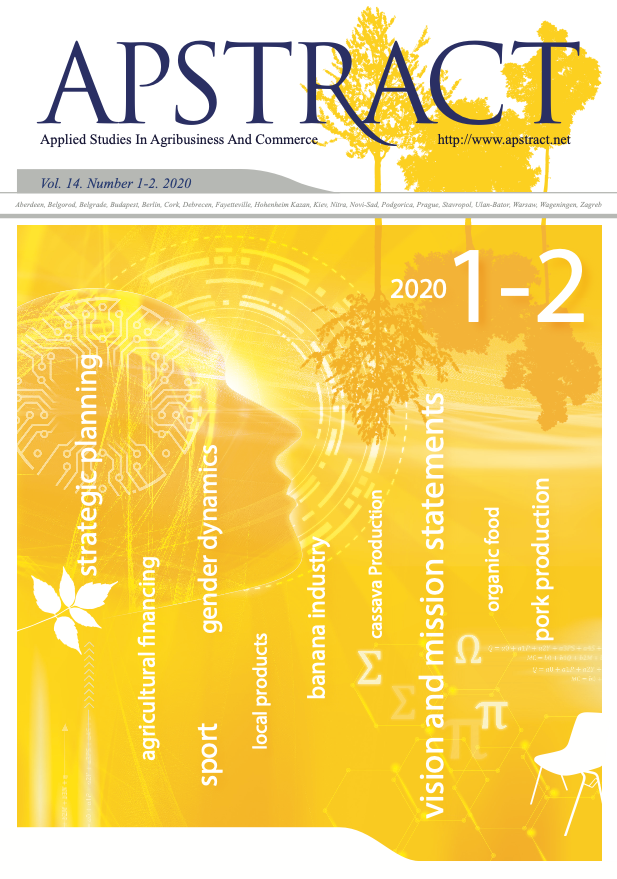Urban consumers’ attitude towards organic food in Sri Lanka
Author
View
Keywords
License
Copyright (c) 2021 Univesity o f Debrecen, Faculty of Economics and Business, Hungary

This work is licensed under a Creative Commons Attribution-NonCommercial 4.0 International License.
How To Cite
Abstract
This research investigation aims to examine the urban consumers’ attitude towards organic food, and the factors affecting for their attitude. A consumer survey consisting of a sample of 600 consumers was conducted, using a pre-tested questionnaire, in major cities of six main districts of Sri Lanka during November 2016 - May 2018. Data were analyzed using descriptive statistics, factor analysis, and multiple linear regression analysis. Results revealed that majority of the consumers were married females. Most of them were of 18-40 years of age category and were educated up to the GCE advanced level. The sample’s monthly income ranged from Sri Lankan Rupees 58000 – 85000. Although the majority of the consumers (75.2%) were aware of organic food, only 11.5% possessed a good knowledge about them. As per the mean analysis, the consumers had a positive attitude towards most aspects of organic food. According to factor analysis, four factors (environmental factors, quality factors, health factors, and marketing factors) were extracted as they are influenced to the consumer attitude for purchasing of organic foods. Results of multiple linear regression analysis revealed a positive relationship between consumers’ attitude and the extracted four factors which were based on the consumers’ attitude on purchasing of organic foods. Main problems faced by consumers in buying organic food were the high price, unavailability of organic food, lack of trust, and lack of market information on organic food. It can be concluded that by providing the necessary conditions such as arranging better marketing facilities with useful market information, a continuous supply of organic foods with reasonable price levels, and enhancing consumer knowledge, will motivate the consumers to purchase more organic food. As relatively low is known about consumers’ purchasing pattern of organic foods in Sri Lanka, findings of this study would be beneficial to the traders and policy makers to formulate effective strategies designed to marketing of organic foods in the country.
JEL CODE: Q13


 https://doi.org/10.19041/APSTRACT/2020/1-2/1
https://doi.org/10.19041/APSTRACT/2020/1-2/1




